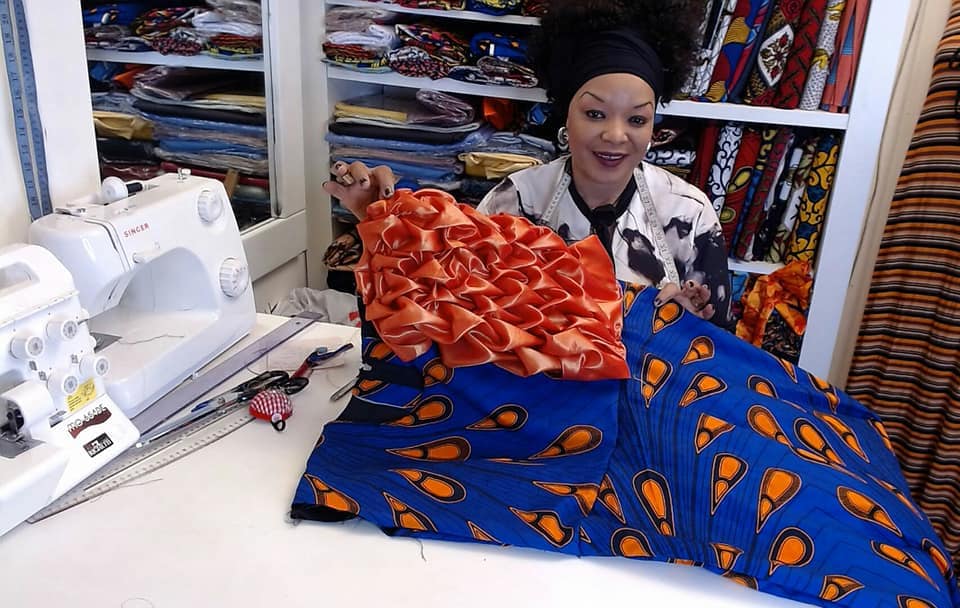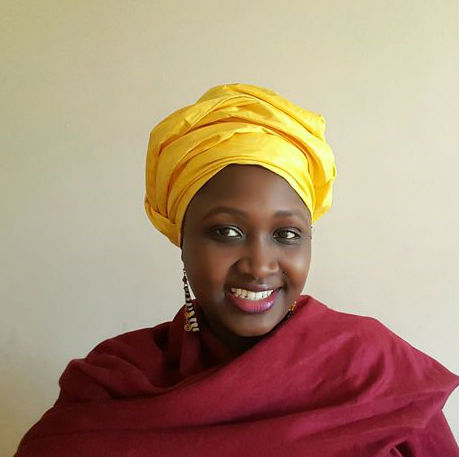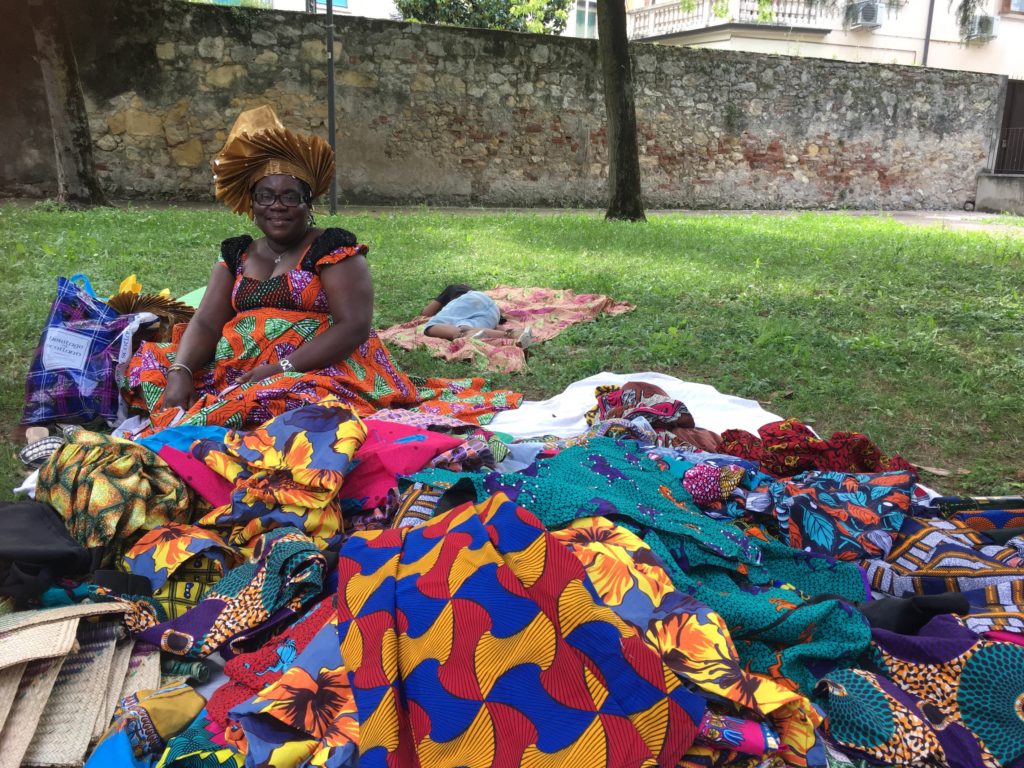Meet Sama, a TikTok creator who is travelling the world without leaving London to counteract negative media portrayals of immigrants.
by Nina Bo Wagner
At the time I met Sama Ansari Pour, she left her home in North London to ‘travel’ to Bangladesh in East London. Almost 35% of Tower Hamlet Borough’s population is Bangladeshi or British-Bangladeshi, according to a 2021 census by Trust for London.
Sama started by browsing Whitechapel Market for Bangladeshi delicacies. She explains that in her research, she found that Bangladeshi cuisine includes a lot of fish due to the population’s easy access to water. However, she is very emphatic that she is trying to capture and learn about London’s Bangladeshi culture and that she does not conflate it with the actual country. Her series does make her travel, though: “I used to only see friends in South London a couple times a year, now I’m south of the river all the time”.
She picks up a bag of rice. “Product of Pakistan”, it says on the back. “Oh no, can’t include that”, she says. “I try not to poke at any rivalries”. Meanwhile, Sama continuously documents her shopping inside the store with her phone, zooming in on a Bangladeshi flag on a box of mangoes, and outside the store, where she films her introduction on the busy high street.
Sama opens her content with “I’m travelling to different countries without leaving London. Today I’m visiting…” followed by the country she is featuring that day. Sama’s work is prolific. She tells me she has covered 16 countries so far, with many more to choose from. London is heralded as one of the most diverse cities in the world. According to research by Trust of London in 2024, 41% of Londoners are not UK-born compared to only 13% in the rest of England.
The City from the Eyes of a Persian Londoner
Sama’s formula for exploring a new country is to visit a shop or a restaurant, have one cultural experience, and interview one person from that culture. However, the limiting format of TikTok often means she needs to break the content into multiple parts. She began with countries that have large populations in the UK, such as Poland, because they were easier to feature and had a potential built-in audience. Other countries, such as Bolivia, were not as easy to find representation for.
Sama herself was born in Iran and migrated to the UK with her mother at the age of three. “I commuted to school on the tube, where I saw a visual representation of London’s diversity every day”, she says. “Now I want to show people the London I saw through the eyes of a kid”. She has already done an episode about travelling to Iran. “It was so healing”, she explained, “because I have such a complicated relationship with my identity. I am not Iranian enough, but I am also not British even though I am a citizen of both. I would call myself a Persian Londoner”.
Sama says she recently left her full-time job to focus entirely on content creation. With a background in Journalism, she worked in a newsroom for three years. She explained that her motivation for starting the series was to show the positive sides of migration.
“I did both of my degrees on how the media shapes public opinion, so I have a deep understanding of how certain narratives influence how people think. I’ve witnessed immigrants being dehumanised by the media and portrayed as violent”, Sama said. For example, wording like the ‘wards are overflowing’ with immigrants compares people to flocks of animals and natural disasters. “You are taking the humanity out of them”, she emphasised. “I want to change that narrative”.
The UK has seen an upswing in violence largely fueled by media and online discourse, such as the racist and Islamophobic riots that plagued England in 2024. London is often at the centre of racist discourse, with 46% of the population classed as ‘Black or Minority Ethnic’ compared to a 14% average in the rest of the country according to the same study by Trust for London.
On her trip to Bangladesh via East London, Sama visits the Altab Ali Park, named after a 25 year-old Bangladeshi Sylheti clothing worker murdered by three teenagers on his way home from work in 1978. The park serves as a stark reminder of the racist violence that characterised the area at the time, after the arrival of Bangladeshi refugees following the civil war with Pakistan in 1971. “It is not a coincidence that people are here”, Sama says, “it is a direct result of British colonialism, the crimes committed abroad, and the process of decolonisation”.
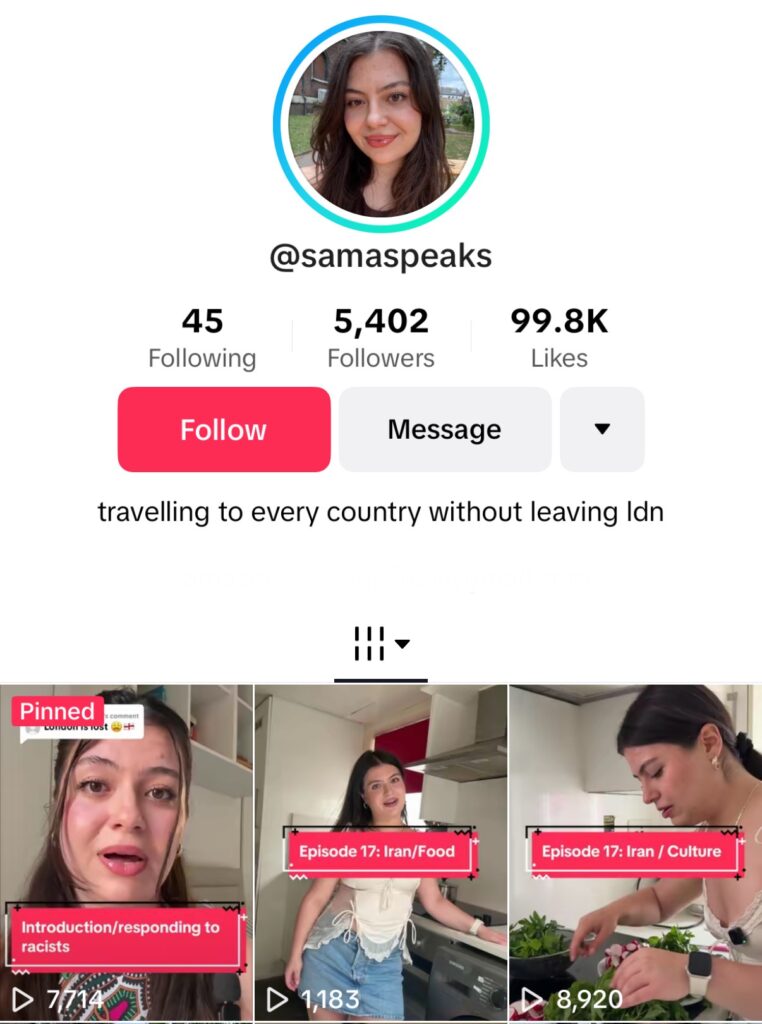
When asked why she chose to pursue content creation as a format, Sama says it was the obvious choice. “Content creation is the only way that an independent person with 0 followers can get heard nowadays. I don’t think another way exists. No one at a news outlet would take up this idea, it is too time consuming”. She emphasised that, as a journalist, you can be put into situations where you are asked to report on angles or issues you do not agree with, but now she has control over her own content.
Whether the attitudes of mass media can be drowned out by online discourse remains up for debate. However, a recent Media Literacy report published by the House of Lords in July found that 52% of UK adults consume their news through social media, up from 47% in 2023, while TikTok and YouTube are the most-used news sources by 12-15 year-olds.
The trend is also “further diminishing the influence of institutional journalism and supercharging a fragmented alternative media environment containing an array of podcasters, YouTubers, and TikTokers”, according to the report. Among UK 13 to 27 year-olds, posts from online influencers are trusted “as much as—and sometimes more than—established journalism.”
For now, Sama would still be considered a micro-influencer, with 5,400 followers on her TikTok profile @Samaspeaks and almost 100,000 likes. She says the reception of her content has been overwhelmingly positive. A small minority, however, has commented that she should be deported or that she represents “what is wrong with London”. “When I did Afghanistan, the racists were going crazy, when I did America – silence. People hate some countries more than others.”
She enters a shop to try on some clothes made in Bangladesh. “Are these Bangladeshi clothes?” she asked the employee, who assured her they were. “I’m in my fuck it era where I just do what I want and I can’t recommend it more”, Sama says. “Wear what you want but be moral, of course. Don’t be offensive”. Sama tries on a blue and white beaded dress and films close-ups in the mirror. The content was posted within a couple of days. She already has her next country planned.
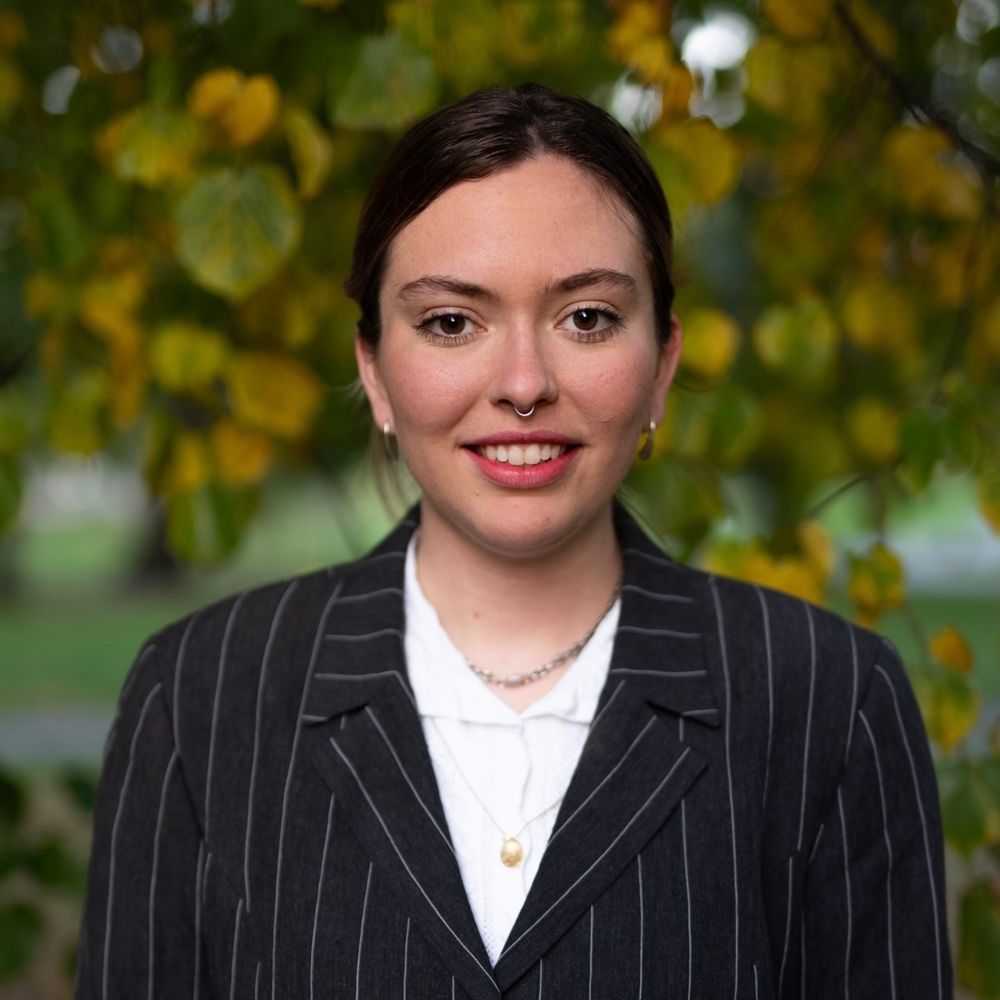
Nina Bo Wagner is a Danish-American journalist and science communicator, based in London. Her main body of work sits within higher education, translating research into human stories. She can be found as a host on the New Books Network. Her educational background is in development and gender studies, and her life has been thoroughly coloured by migration.

